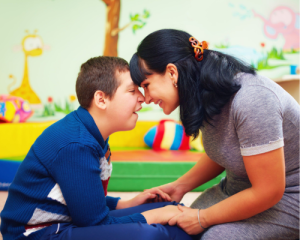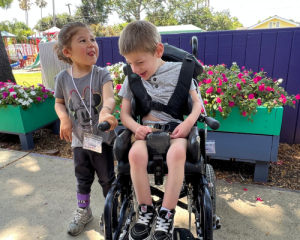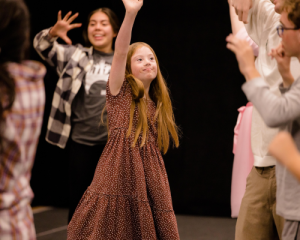
Q: [All Ages] I want to bring up the topic of human trafficking with my kids, but I don’t know how to go about it. Can you offer some advice?
A: It may seem like an unusual topic to bring up with a child, but human trafficking is a subject matter that is begging for increased awareness — even among youth. The topic can be frightening, there is no way around that. It may also be uncomfortable for parents to discuss. But with expanding technology, tracking devices and social media now in the hands of our youth, the potential risks and vulnerability to human trafficking are higher than ever before.
In Orange County just over the last two years, the Orange County Human Trafficking Task Force helped 415 human trafficking victims, and more than 25 percent of them were minors. Despite the misconception that human trafficking only affects foreign nationals, 83 percent of these victims were U.S. citizens. Additionally, children from low-income socioeconomic backgrounds, single-parent homes, those without homes and those who lack access to education are at an increased risk.
Here are a few key messages, by age group, to help you navigate the conversation, and educate and empower the children in your life:
Young Children (ages 2-6)
Children at this age are probably not ready for conversations about human trafficking. But parents can begin helping children develop an understanding of their own worth and the value of every human life.
- Respect Our Bodies — At this stage, children begin learning to care for themselves: brushing their own teeth, dressing themselves and using the bathroom on their own. Use this time as an opportunity to help children understand that we should treat our bodies with respect. Other people’s bodies deserve respect, too. Our bodies should never be used to get something we want — even if someone offers a reward, candy or a toy. Make sure children understand the importance of personal space. If anyone makes them feel uncomfortable, then they should immediately tell an adult they trust.
- Fairness — When a child experiences unfairness, talk about what happened and address their feelings. Explain that fairness is one of our core values and should never be compromised.
- Gender Roles and Stereotypes — Children may start to notice the different expectations of girls and boys, and of women and men. Help children learn to recognize stereotypes and understand how they affect people. Try saying: “Mommy likes to cook, but that doesn’t mean she has to cook.”
Older Children (ages 7-12)
Children between ages 7 and 12 have more experience and are more capable of expressing themselves. Since they are more likely to be exposed to upsetting news and online content, help provide a safe place to discuss these things and answer their questions.
- Privacy and Social Media Safety — Children at this age should know to keep private information private, including full name, address, school and even living situation. Telling someone they don’t know personally these bits of information can put them at risk, and it’s necessary to explain why. Encourage older children to be cautious on social media. This rule should go for the whole family but discourage your child from accepting friend requests from people they don’t know, explaining they could be someone who is trying to hurt them. Traffickers often use social media sites to lure their vulnerable victims.
- Allowance — If your children receive an allowance, start teaching them about fair compensation. Explain that some people work for very little money and that it’s important to do research about our purchases to make sure the people behind them are being treated fairly.
- Notions of Work — As children begin understanding work as something adults do during the week in exchange for money, introduce them to the concept of forced labor.
If your child knows the resources and numbers to call and reach out to, chances are they will use them. If there is immediate danger, call 911 for help. If a child is at risk of running away from home, call the runaway switchboard at 1-800-RUNAWAY. If you suspect you or a friend are at risk of trafficking, call the National Human Trafficking hotline at 888-373-7888 or text “BeFree” (233733). At any age, if your child feels uncomfortable or even hesitant about a situation, ask them to confide in a trusted adult.
 Lita Mercado is director of Victim Assistance Programs at Waymakers. Waymakers serves as the administrator of the Orange County Human Trafficking Task Force. For more about Waymakers, visit waymakersoc.org.
Lita Mercado is director of Victim Assistance Programs at Waymakers. Waymakers serves as the administrator of the Orange County Human Trafficking Task Force. For more about Waymakers, visit waymakersoc.org.











north shore says
Very informative blog. Keep up with good work.